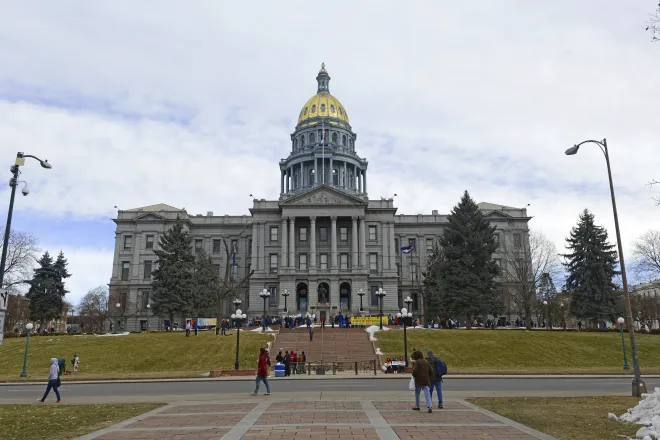
Daily Audio Newscast - November 5, 2025
© AlexLMX - iStock-823000260
Six minutes of news from around the nation.
Record turnout as Mamdani wins NYC Mayor's race; Virginia and New Jersey elect female Democratic governors in historic firsts; Trump administration guts finance fund that helps fuel tribal economies; SNAP benefits lapse hitting rural Montanans hard; Keystone State students confront lawmakers about their future.
TRANSCRIPT
The Public News Service Daily Newscast for November the 5th, 2025.
I'm Mike Clifford.
Zoran Mamdani has won the race for New York City Mayor, ushering in a new era of progressive politics in the city and reigniting the debate over the Democratic Party's future, that from the Hill.
They report Mamdani, a 34-year-old Democrat socialist, is poised to become the first millennial and first Muslim to lead New York City after a campaign that pulled off one of the most stunning political upsets in recent memory.
He defeated former New York Governor Andrew Cuomo, who mounted a long-shot independent bid, and Republican Curtis Sliwa in his bid to succeed Mayor Eric Adams.
And from CNN, Abigail Spanberger, a former Democratic Congresswoman and CIA officer, will become Virginia's first female governor, and Democratic Representative Mikey Sherrill will become New Jersey's first female Democratic governor.
According to preliminary CNN exit polling, majorities disapprove of President Donald Trump in the four closely watched contests.
Economic stability and empowerment for tribal economies are under threat.
Following budget cuts by the Trump administration, South Dakota communities are worried about how they will be affected.
Earlier this fall, the White House laid off all the staff at the Community Development Financial Institutions Fund while announcing the initiative would be abolished in the midst of an ongoing government shutdown.
There is a core challenge to reverse the job cuts amid bipartisan backlash.
Lakota Vogel leads the four-bands community fund with the Cheyenne River Reservation, and she says in her area, these dollars helped shape mission-driven lending.
The CDFI fund dollars were really essential in our earlier stages so that we could re-lend for the opportunities that we see in our community, including mortgages and small businesses and home renovations.
Without it, we would not have been able to be who we are today.
The Trump administration argues the fund doesn't align with its priorities, but the CDFI fund has long enjoyed bipartisan support from both Republicans and Democrats in Congress.
I'm Mike Moen.
And the lapse in staff benefits is hitting rural Montanans hard, as food banks in smaller communities often have fewer resources.
Many are run by community members and volunteers, and may not have the capacity to meet the increased need.
Rose Duncan with the Community Food Bank of Mineral County says they're doing everything they can to get food to people who may go hungry.
That includes appointments for emergency food in addition to weekly distributions, along with some other adjustments.
We're going to lift some of our requirements and do it as we did for COVID.
We're not going to make people verify income.
They'll just sign a self-declaration.
We're not going to turn anybody away.
More than 77,000 Montanans won't get their full SNAP benefits this month Because of the government shutdown, the Trump administration says it'll provide half of the usual SNAP program funding in November.
I'm Laura Hatch reporting.
This is Public News Service.
Students across the Keystone State say they are becoming increasingly aware of how their legislators are failing them.
Pennsylvania College students met with their local congressional representatives last week to encourage them to stop playing political games with the American economy.
As part of Project 26 Pennsylvania, students on several college campuses sponsored events designed to raise political awareness among other students.
Elizabeth Ng, a sophomore at Dickinson College, says they bluntly told politicians to stop sabotaging their future.
"The economy is dead, prices are rising, and a lot of students are very unhappy with the cost of employment and how hard it has been to find a job."
"Excess typical post-graduation dreams like owning a home, finding a well-paying job, or simply not being saddled with burdensome debt seem further out of reach each day.
Events were planned at Dickinson, Pittsburgh, Temple, Lehigh, and Penn State."
Mark Richardson reporting.
And a new program in North Carolina aims to help people with severe mental illness from going back behind bars.
The Forensic Assertive Community Treatment, or FACT, teams launched a pilot program this week.
They provide individualized care services for people released from jail or prison who have mental health needs including direct mental health care housing job and education programs and day-to-day support Kelly Crosby is director of the division of mental health developmental disabilities and substance use services with the state department of health and human Services.
She says the fact teams are especially trained to work with probation and parole officers to help facilitate discharge So it's not like they get put on the street and then the fact team takes over.
The fact team begins their work while the person is still incarcerated.
So they work with them.
They understand the terms of their probation or parole.
They help them fulfill those and get treatment at the same time.
First Lady Anna Stein unveiled the nine point five million dollar pilot program this week.
The connection between mental health and crime has been in focus in North Carolina after a man with mental health issues and a criminal record was charged with killing a Ukrainian woman in Charlotte in August.
I'm Eric Tegethoff reporting.
Finally, a new coalition formed by groups in more than a dozen states, including Kentucky, aims to secure funding for a regional restoration plan for the Ohio River Basin, which 30 million people rely on for their drinking water.
More than 97 percent of Kentucky rivers and streams draw from the Ohio River, explains Michael Washburn with Kentucky Waterways Alliance.
He says a long history of pollution has imperiled the health of regional waters for decades.
We have PFAS, we have aging infrastructure in our water utilities, and we also have a lot of both aquatic and terrestrial wildlife species that are under threat.
Nearly 70 percent of streams and 64 percent of lakes in the Ohio River Basin do not meet state water quality standards.
This is Nadia Ramlagan for Kentucky News Connection.
This is Mike Clifford for Public News Service.
Member and listener supported.
Find our trust indicators at publicnewsservice.org.
















